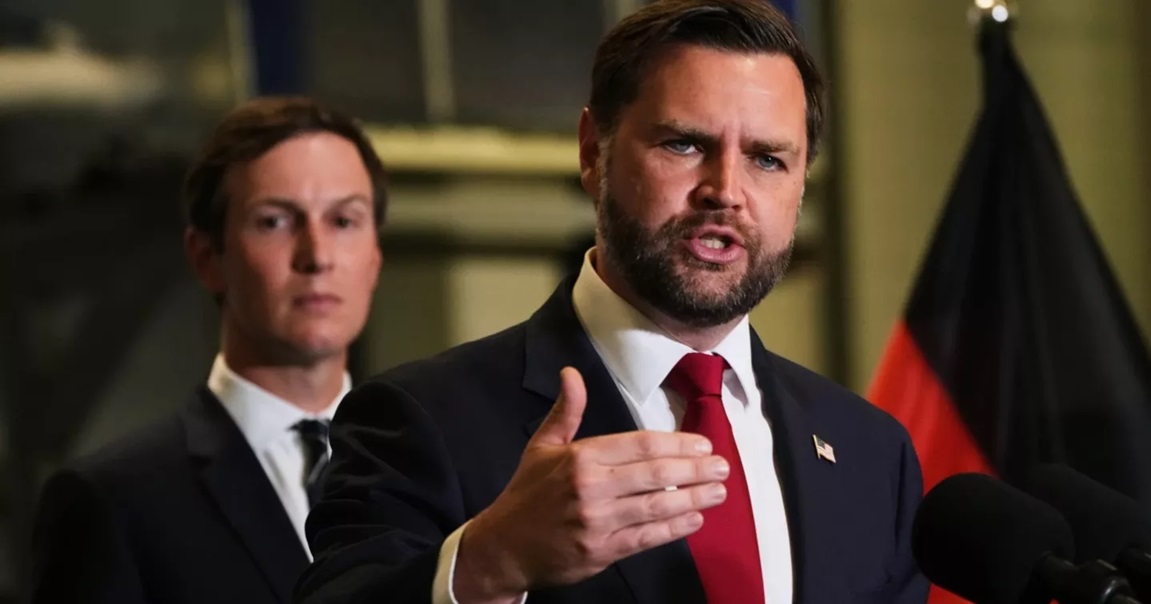Vance optimistic about Gaza ceasefire, but warns of difficult road ahead


U.S. Vice President JD Vance on Tuesday described the fragile ceasefire in Gaza as progressing “better than expected,” while acknowledging significant challenges ahead, including disarming Hamas and rebuilding a region devastated by two years of conflict.
During his visit to Israel, Vance noted recent flare-ups of violence but said the truce between Israel and Hamas, which began on Oct. 10, is holding better than anticipated. U.S. Middle East envoy Steve Witkoff added that efforts are exceeding initial expectations.
Vance and Witkoff toured a new center in Israel aimed at civilian and military coordination, amid ongoing questions about Gaza’s long-term governance and the potential deployment of an international security force. Vance emphasized that his visit—his first as vice president—was not an emergency measure to preserve the ceasefire. He expressed confidence in lasting peace but warned that Hamas would face “obliteration” if it failed to cooperate.
Jared Kushner, U.S. President Donald Trump’s son-in-law and one of the architects of the truce, highlighted the transition from two years of intense conflict to a peacetime posture, describing the process as complex.
Vance, who will remain in the region until Thursday to meet Israeli Prime Minister Benjamin Netanyahu and other officials, also commented on the release of hostages. Late Tuesday, Israel returned the remains of two more Gaza hostages, bringing the total recovered since Oct. 10 to 15. Thirteen more remain in Gaza. He urged patience, noting that some hostages remain buried under rubble or their whereabouts are unknown.
Under the ceasefire terms, Israel is releasing 15 Palestinian bodies in exchange for each deceased hostage. Gaza’s Health Ministry said Israel has transferred 165 bodies so far this month.
Vance stressed the importance of security and rebuilding before discussing Gaza’s long-term governance. “Once both Gazans and our Israeli friends have some measure of security, then we’ll focus on governance,” he said, urging flexibility and acknowledging the difficulty of the work ahead.
Although around 200 U.S. troops have been sent to Israel, Vance clarified that none would deploy to Gaza. Officials are conceptualizing an international security force for the territory, with Turkey, Indonesia, Jordan, Germany, Britain, and Denmark expected to participate. Britain has committed a small contingent of officers to monitor the ceasefire.
Aid into Gaza is increasing, but prices for essential goods have surged. The World Food Program reported sending over 530 trucks in the past ten days, feeding nearly half a million people for two weeks. Hamas has cracked down on price gouging, closing shops and ensuring safe passage for aid trucks.
Despite this, Gaza’s financial system remains in disarray, with banks and ATMs largely inoperable, forcing residents to rely on cash brokers for daily expenses.
Meanwhile, Gaza health officials said some bodies returned by Israel bore signs of torture, including rope and metal bindings, deep wounds, and crushed limbs, and called for a U.N. investigation. The Israel Prisons Service denied mistreatment of detainees. Israeli hostages freed from Gaza have also reported harsh treatment, including shackling, beatings, and starvation.
The Israel-Hamas war, sparked by the 2023 Hamas attack, has killed over 68,000 Palestinians, according to Gaza’s Health Ministry, and Israel disputes these figures. Around 1,200 people, mostly civilians, were killed in the initial attack, with 251 abducted as hostages.
